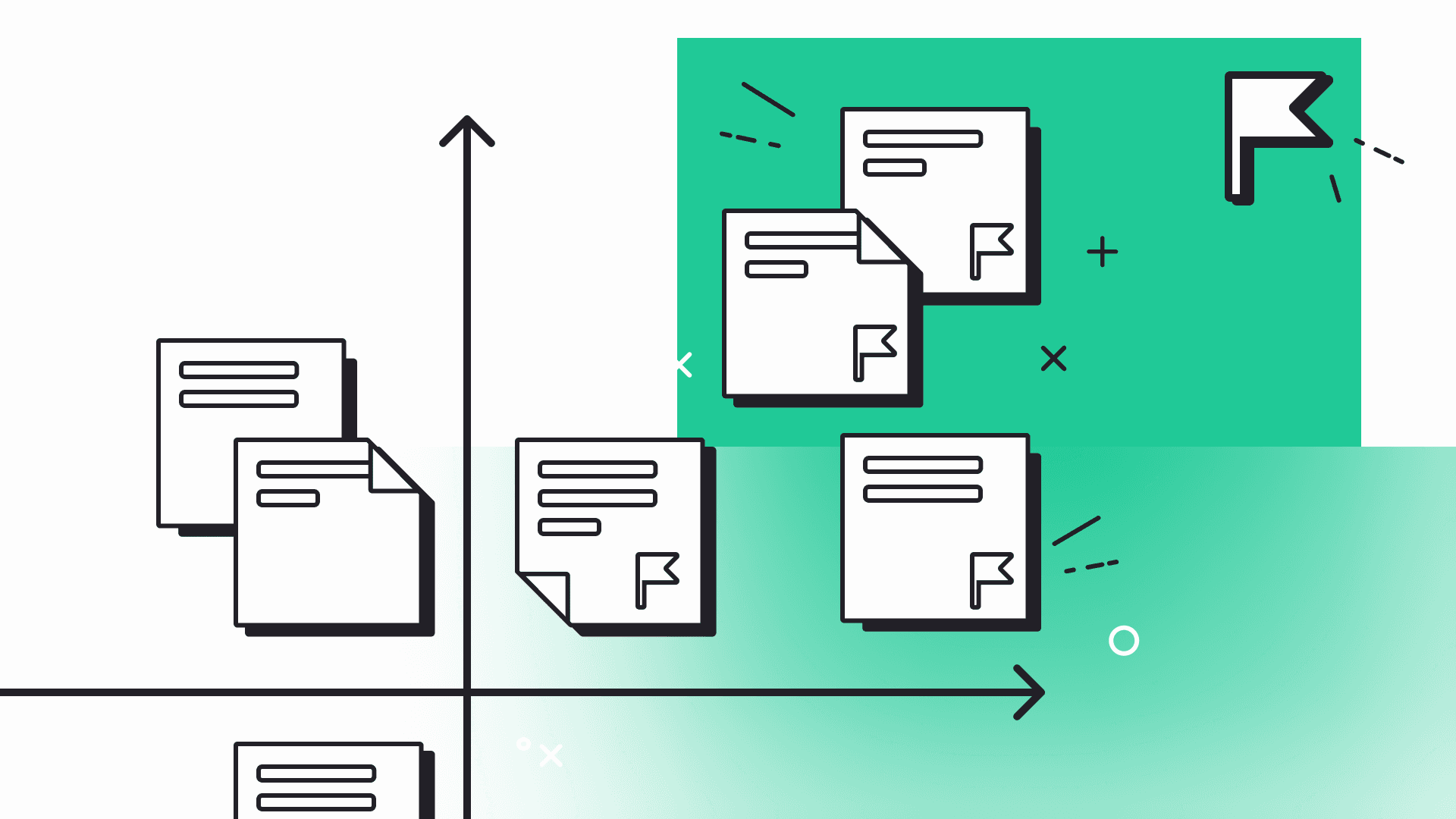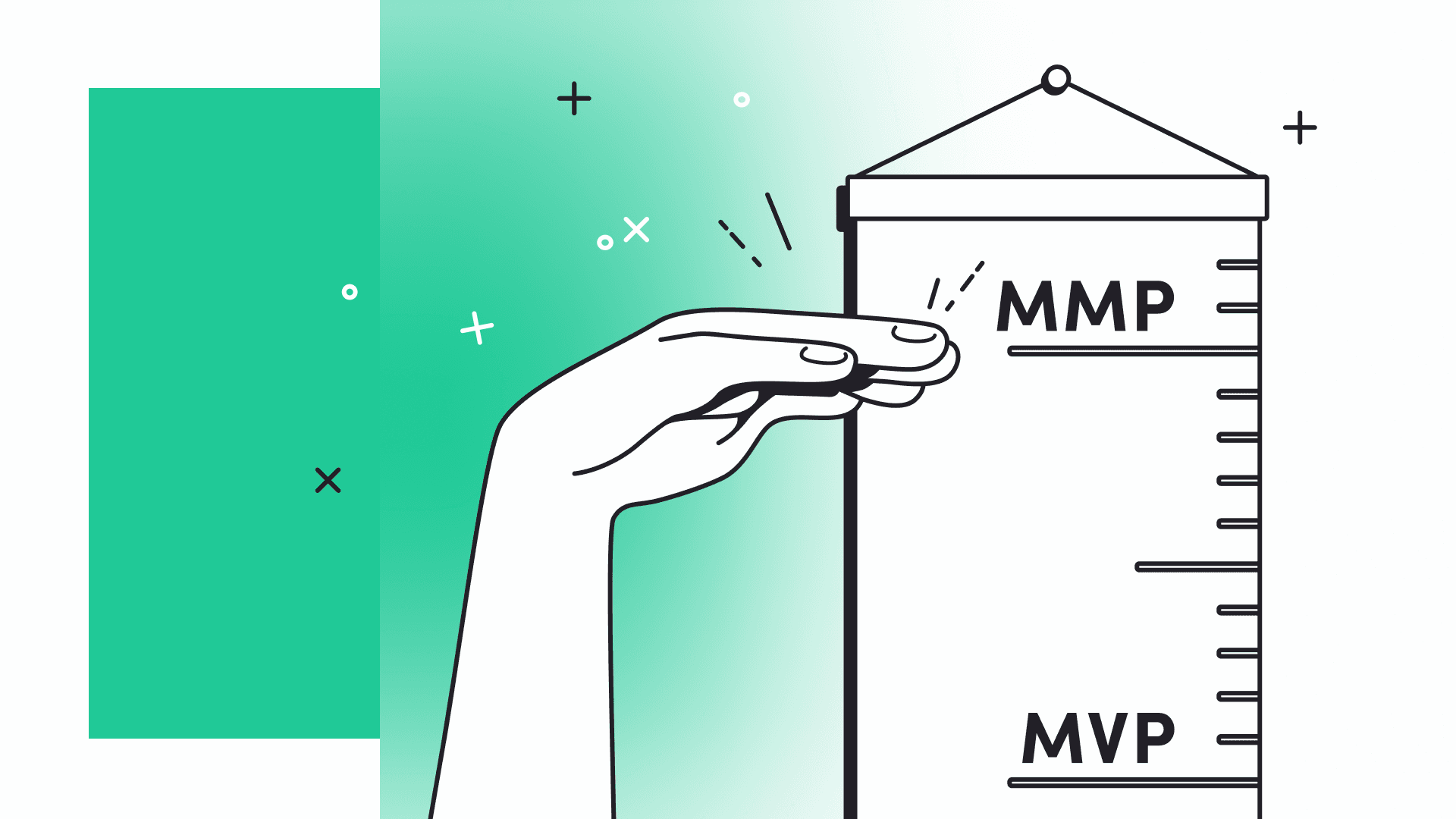

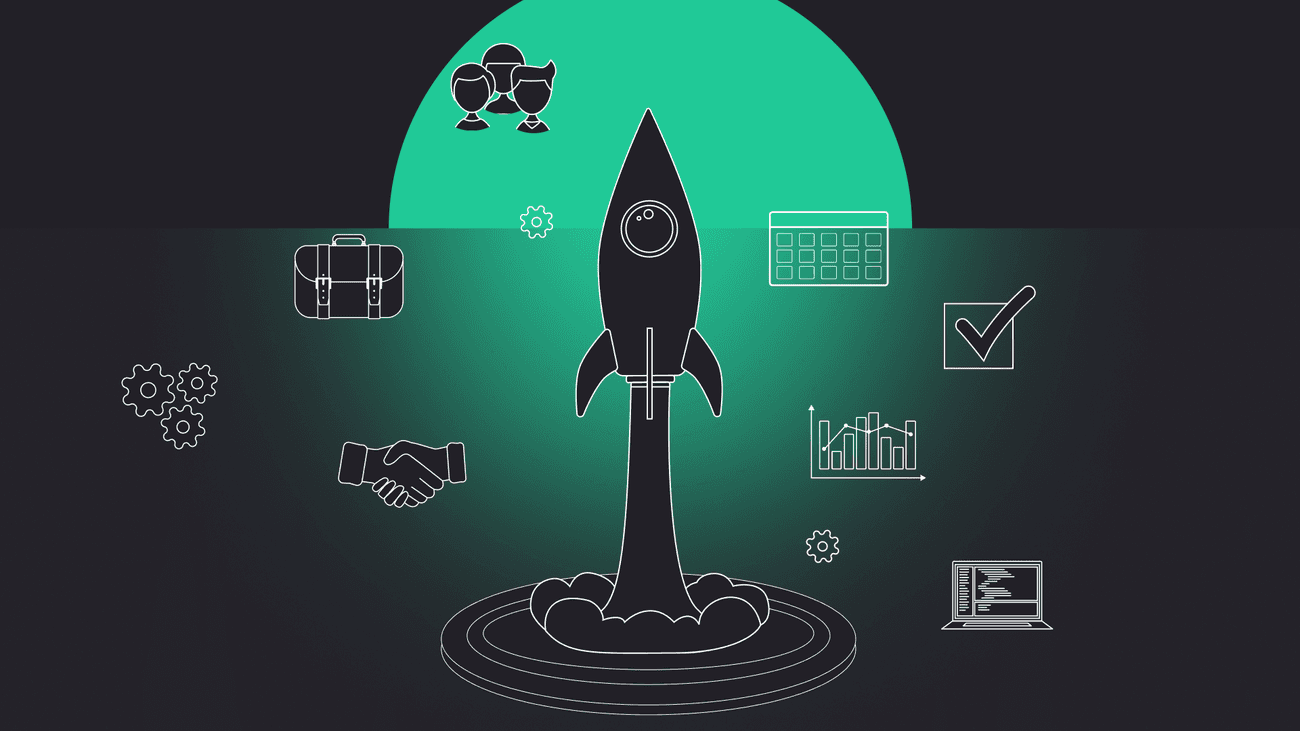
Kickstart your tech journey: 12 tips on how to find the right software development partner
Choosing the right software development partner is crucial for the success of your project. Whether you’re a startup looking to develop an innovative app or an established company seeking to modernize your systems, collaborating with a reliable software development partner will provide you with the expertise and resources you need.
Let’s take a look at an example and see how Cillian, one of our clients, successfully navigated this process.
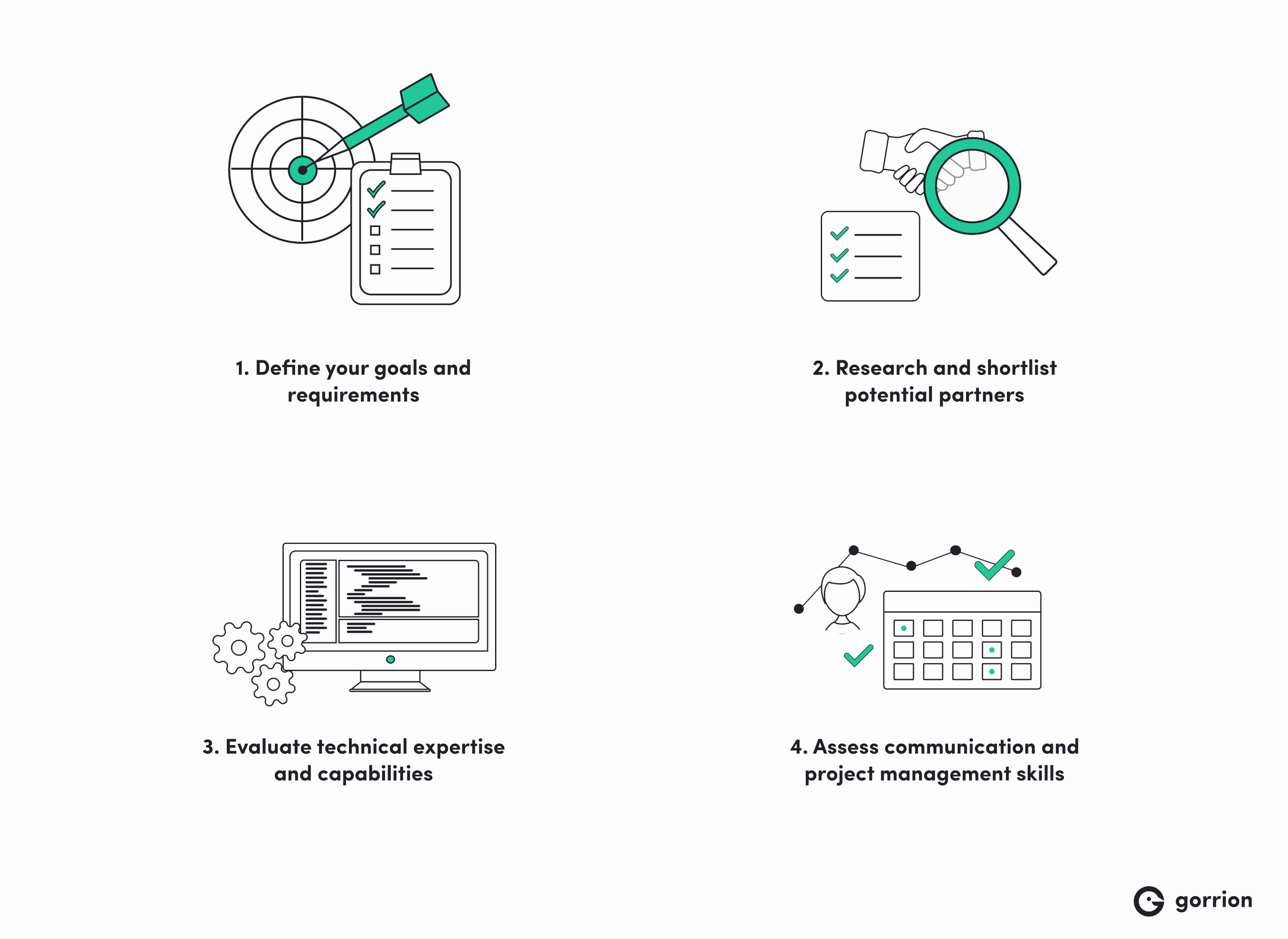
1. Define your goals and requirements
Before reaching out to potential software development partners, clearly define your project goals and requirements. When Cillian first embarked on developing a new app for his company, he realized the importance of having a detailed project brief.
Understanding what he wanted to achieve, the scope of the project, and the specific features or functionalities he needed, helped him communicate his vision effectively. This initial clarity ensured that the software development companies he approached fully understood his needs from the start.
2. Research and shortlist potential partners
Cillian conducted thorough research to find software development companies that had experience both in his industry and with similar projects.
He looked at portfolios, case studies, and client testimonials to gauge their expertise and reliability. This process helped Cillian create a shortlist of potential software development partners with a proven track record of delivering high-quality solutions.
It was worth the effort to find a software development partner who had walked the path he was about to take and who could thus help him navigate the nuances of product development.
3. Evaluate technical expertise and capabilities
Once he had a shortlist, Cillian evaluated the technical expertise of each software development company. He checked their proficiency in the technologies and platforms relevant to his project.
For his app, Cillian needed a team skilled in both iOS and Android development. He assessed their skill sets, tools, and development methodologies. He knew that a software development company with a strong technical foundation would be better equipped to handle his project’s complexities.
4. Assess communication and project management skills
Effective communication is essential for a successful partnership. Cillian assessed how each potential software development partner handled communication and project management. Were they responsive to his inquiries? Did they provide regular updates?
The right software development partner for Cillian, Gorrion, had established processes for managing projects, including clear communication channels and regular progress reports. This transparency made the collaboration smooth and stress-free.
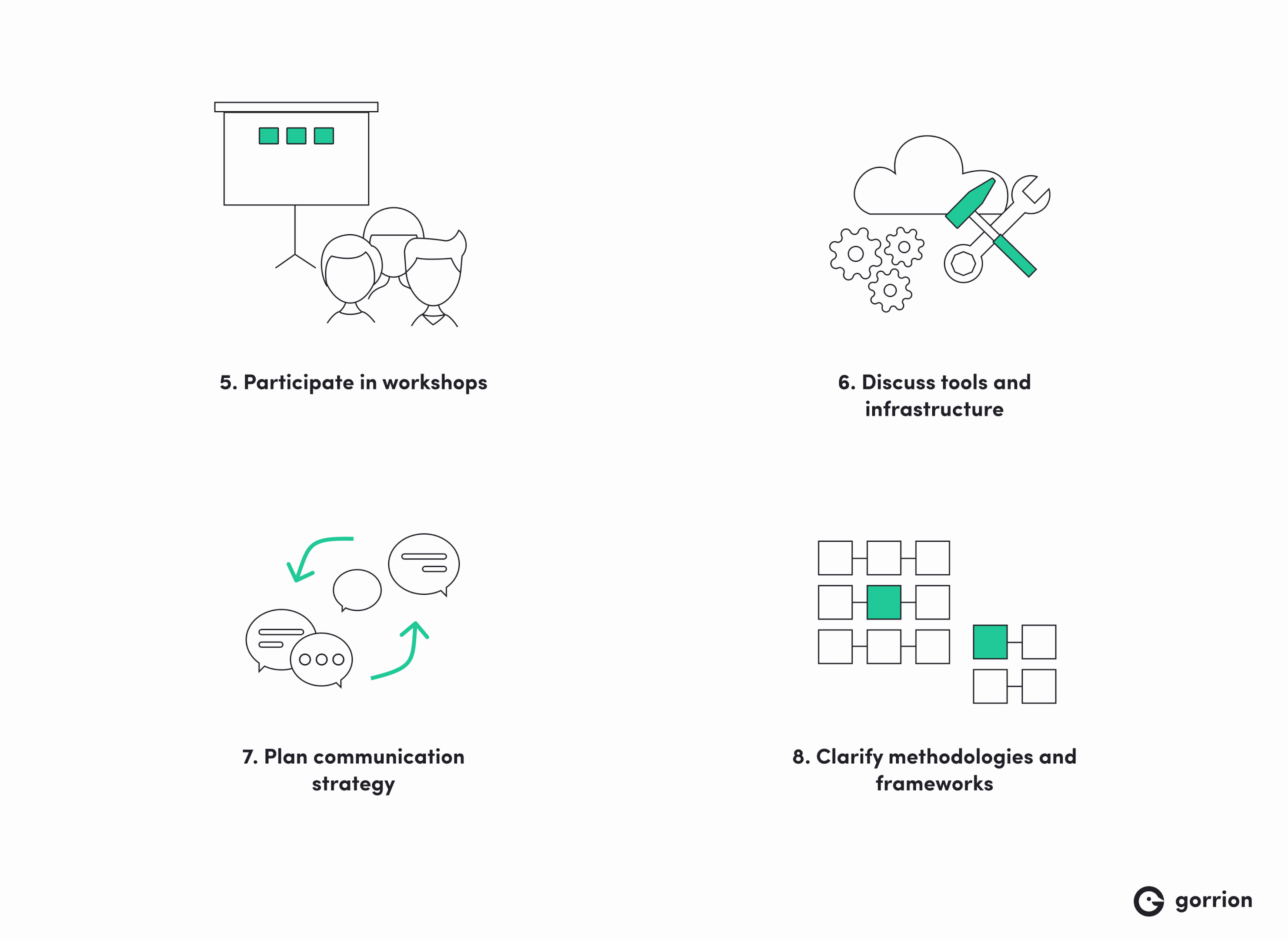
5. Participate in workshops
Many software development companies offer product discovery workshops at the beginning of a collaboration. These workshops are invaluable for aligning both teams and ensuring mutual understanding.
During these sessions, Cillian introduced his industry to the development team, explained his product goals and strategy, and discussed the methods for validating his idea, the project scope, timeline, and roadmap with the team. They prioritized features, identified target users (proto-personas), and defined the problems the product would solve.
This early investment of time paid off immensely as it set a strong foundation for the project.
6. Discuss tools and infrastructure
Understanding the tools and infrastructure required for the project is crucial. Cillian discussed with us what tools and platforms we would use for development, testing, and deployment. Additionally, he inquired about the costs associated with these tools and infrastructure to ensure they fit within his budget. Knowing these details upfront helped Cillian plan and avoid unexpected costs.
7. Plan communication strategy
Cillian established a clear communication plan to ensure smooth collaboration. We discussed the following:
- his availability and the development team’s working hours;
- frequency and timing of meetings and updates;
- his level of involvement in the project and his and the team’s responsibilities;
- tools for daily communication, meetings, documentation, and asynchronous communication.
Throughout Cillian’s project, we used tools like Slack for daily communication, Google Meet for weekly meetings, and Jira for project tracking. Having a clear communication plan kept everyone on the same page and helped avoid misunderstandings.
8. Clarify methodologies and frameworks
Cillian asked the team to explain the frameworks and methodologies they use for software development process (e.g., Agile, Scrum, Kanban, Scrumban). Understanding what this meant for his project – including the implications for timelines, deliverables, and his involvement – helped him align his expectations and participate effectively.
His team used Scrum, which meant they had regular sprints and reviews, keeping the project flexible and adaptive to changes.
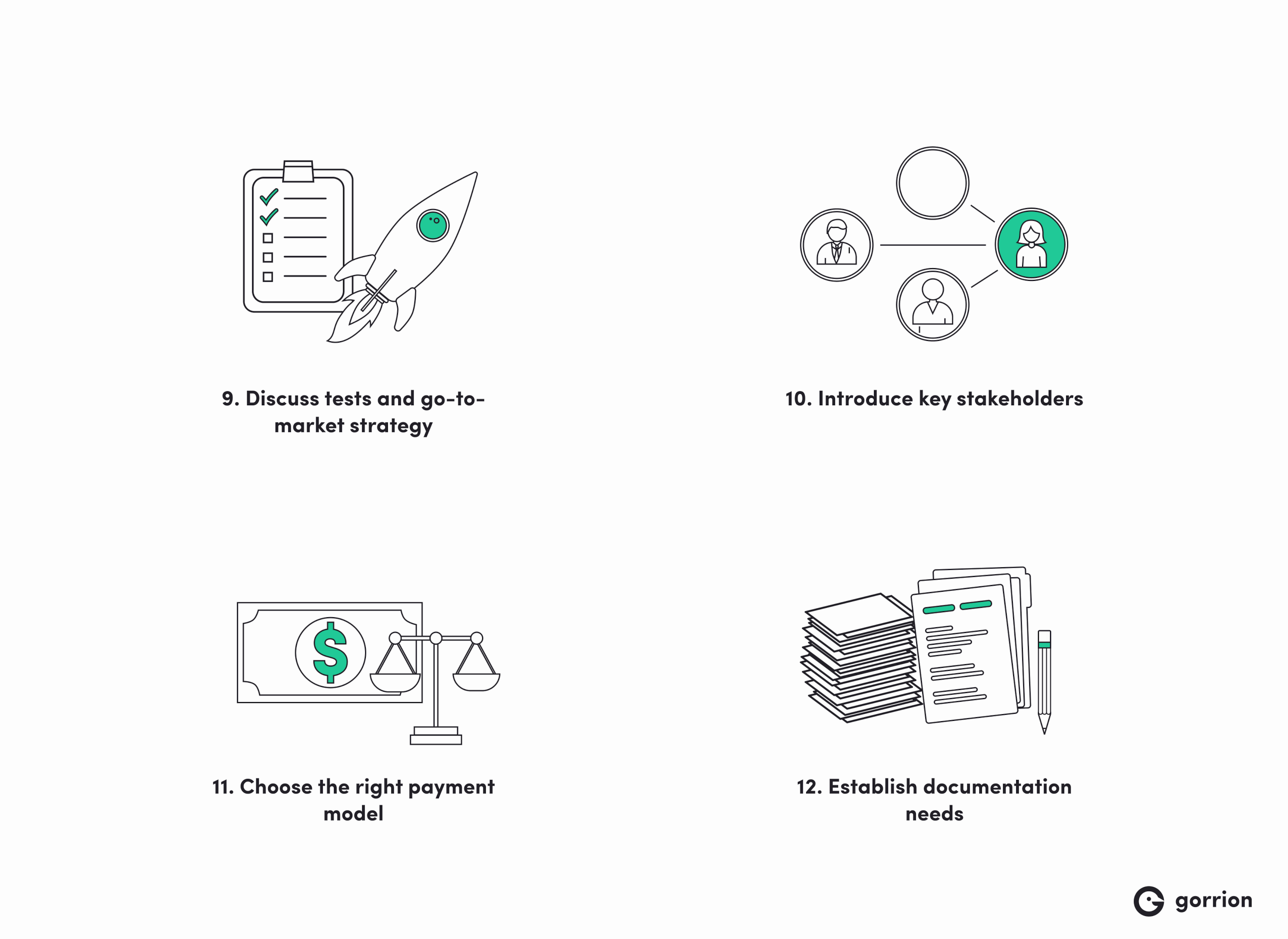
9. Discuss tests and go-to-market strategy
Cillian discussed the testing plan for his application. He understood the types of tests that would be implemented and whether there would be beta testing with users.
Additionally, we discussed a go-to-market strategy, outlining the steps for the official launch of the product. Cillian and the team also discussed some plans for remote beta testing, which would provide invaluable feedback and ensure a smooth launch.
10. Introduce key stakeholders
As Cillian is not the only person in his company , he introduced other individuals in his organization who would influence the project to our team. He clearly outlined their roles, responsibilities, and areas of expertise.
This ensured that the development team knew who to contact for specific issues or decisions. Having all key stakeholders involved from the beginning avoided bottlenecks and ensured everyone was on the same page.
11. Choose the right payment model
Before starting the collaboration, the best payment model for Cillian’s project was considered: fixed price or time and material. He asked us to explain these models, including their pros and cons, and recommend the best option for his needs.
This helped him manage his budget and project expectations effectively. For his project, the time and material model worked best as it provided flexibility for changes and adjustments.
12. Establish documentation needs
Documentation needs can range from basic product documentation to detailed specifications or instructional videos. Cillian discussed his documentation requirements with us to ensure all necessary information would be available. Cillian requested basic product documentation and user guides, which proved invaluable for training new team members and supporting users.
Are you ready for step 1?
By following these steps, you can start a successful collaboration with a new software development company, ensuring that your project is delivered on time, within budget, and to the highest standards of quality. After all, as the saying goes, “The beginning is the most important part of the work.” So, are you ready to take the first step toward transforming your vision into reality like Cillian did?


Have a project in mind?
Let’s meet - book a free consultation and we’ll get back to you within 24 hrs.
